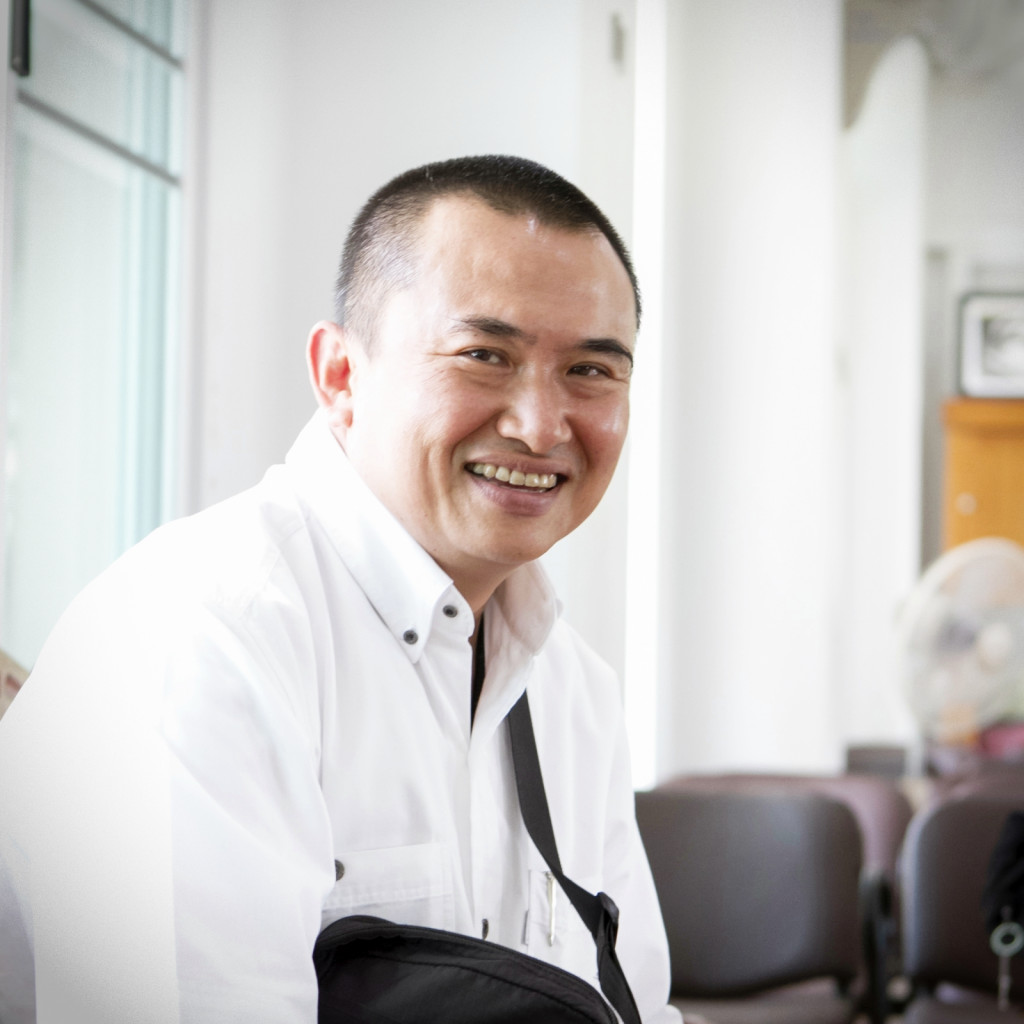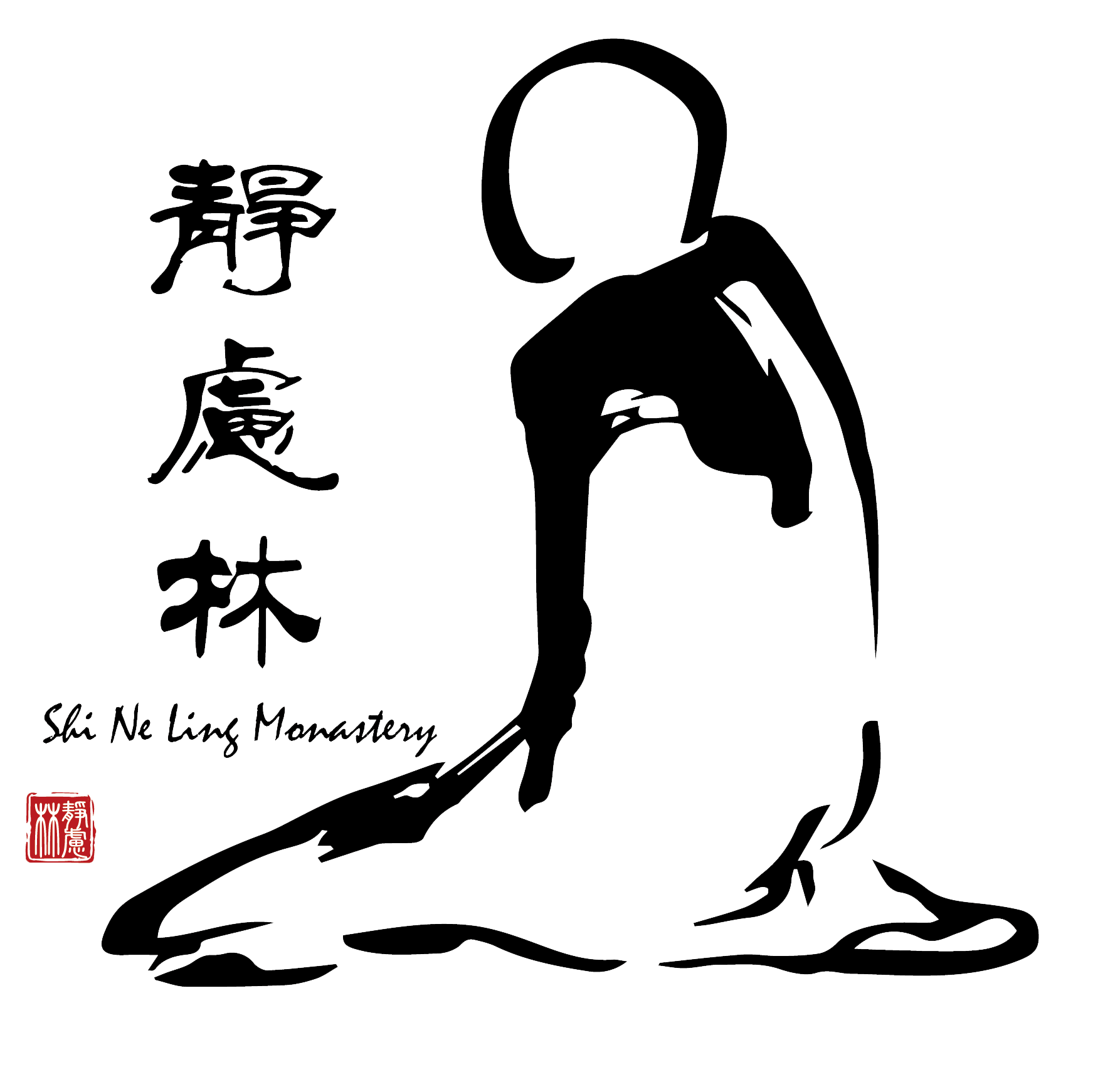Ajahn Prasan Bhuddhakulsomsiri
อาจารย์ประสาน พุทธกุลสมศิริ

【阿姜巴山簡介】
跨越语言的隔阂,跨越民族的藩篱,一届又一届以中文为主导的禅修课程、一篇又一篇以中文群体为对象的教导,那一双慈悲愿力的推手,推动法弘遍整个中文世界。承载着众生离苦的愿力,牺牲自己抵达最终目的地的寂静,他将生命奉献给法的弘传,循循善诱引导着正在迷路的我们。
若想遇见一位不谋求利益、不冀望回报、真心帮助你的人,在世间出现一位,已是稀有珍贵至极,而我们都一起遇上了。
阿姜巴山為泰國著名禪師隆波帕默尊者的實證弟子,其弘法足跡遍及中國、泰國,包括曼谷、羌奈、孔敬府、那空沙王等不同地方,如今更是首次踏入大馬這片土地。
1968 年出生於泰國春武里府。
1991年獲assumption uniwersity工商管理學士學位。
工作方面:
目前是幾家公司的董事長。
佛法方面:
1. 自幼喜愛閱讀佛敎書籍與佛陀傳記。
2. 大學時代開始實修,曾跟隨著名的佛使比丘修學。
3. 1994 年,學習「 稱念佛陀 」的禪法。
4. 2004 年,學習隆波田動中禪,也學習過兩年觀照腹部起伏的禪法。
5. 2006 年至今,跟隨隆波帕默尊者修行。
阿姜巴山在接受採訪時說:
2012 年 8 月 23 日,我與一位商業競爭對手喝咖啡,當談及客戶的歸屬問題時,由於被搶走了客戶,十分擔心與憂慮。就在那時,心發生了兩次生滅,當時不知道那意味著什麽,心也並未去定義。隨後,「看見」心說了一句:「任何生起的,必然會滅去」,之後心中產生了清凉與祥和的幸福感。競爭對手當時很好奇,問:「你的客戶都被搶走了,怎麽還能這樣平靜?」那時並不知道是「見法」了,只覺得寧靜、清凉、幸福,而且持續了好幾天。最後,心恢復常態,卻再也不是以前的常態。從此以後,再苦,也不覺得是「我」在苦,只覺得是心苦。再高興,也不覺得是「我」在高興,而了解到是心在高興!但是與人交談時, 還是會沿用「我高興、我難過」的習慣用語,只是不會再覺得是「我」高興與「我」難過。在那以後,每次隆波帕默尊者在寺廟講完法,就會讓阿姜巴山指導大家實修。
阿姜巴山的敎學風格直率活潑,會針對各人不同情况,給予具體切實的建議。他是隆波帕默尊者身邊非常得力的弘法者,被尊者指派爲代表,前往中國指導禪修。
目前已譯成中文的著作有《法談一》、《今天我們就是那隻龜》。
【The Biography of Ajahn Prasan Bhuddhakulsomsiri】
It is through transcending barriers of language and ethnicity, arranging meditation retreats and preaching series of teachings catering for the Chinese community, that his will to propagate the Dhamma for the Chinese-speaking world is created out of compassion. HIs aspiration to liberate sentient beings from suffering results in his commitment to propagate the Dhamma by providing systematic guidance to those lost in life.
It is no easy feat finding someone who helps without seeking returns, let alone meeting such a person.
Ajahn Prasan is the disciple of Thailand’s well-known meditator, Luangpor Pramote Pamojjo. His Dhamma propagation covers China and Thailand, including Bangkok, Chiang Mai, Khon Kaen, Nakhon Sawan etc. Year 2023 will be his first trip to Malaysia.
He was born in Chonburi, Thailand in 1968.
In 1991, he received a bachelor’s degree in business administration from Assumption University.
In terms of Work:
- Currently he is the CEO of several companies.
In terms of Buddhism:
- He has loved reading Buddhist books and biographies of the Buddha since childhood.
- He started to practice Buddhism in college, learning with the famous Buddhadasa Bhikkhu.
- In 1994, he learned the method of meditation using the word “Buddho”.
- In 2004, he learned the dynamic meditation of Luangpor Teean and also practiced the meditation method of observing the rising and falling of the abdomen for two years.
- Since 2006, he has practiced under the guidance of Venerable Luangpor Pramote Pamojjo.
Ajahn Prasan once said in an interview: “On 23 August 2012, I had coffee with a business rival and when we talked about our clients, I was very worried and disturbed because I discovered that my client had been poached. At that moment, my mind arose and ceased twice, but I did not know what that meant and could not form any definition. Thereafter, I was aware of my mind saying, ‘Anything that arises, will definitely cease’. Subsequently, my mind was in a state of tranquility, harmony and happiness. My business rival was curious and asked, ‘Your client was poached by others, how can you be so calm?’ At that time, I did not know that I had seen the Dhamma. All I felt was tranquility and happiness which lasted for several days. Eventually, my mind returned to its normal state, but it was not the same as before. Since then, no matter what suffering I faced, I did not feel that it was ‘me’ that suffered, I only felt that mind was suffering. No matter what happiness I experienced, I did not feel that ‘I’ was happy, instead I understood it as mind being happy! When I had conversations with others, I would still use common expressions like ‘I am happy’ or ‘I am sad’. It was just that I no longer felt that ‘I’ am happy or ‘I’ am sad.”
Since then, Luangpor Pramote Pamojjo instructed Ajahn Prasan to guide everyone in their practice after he ended his Dhamma talks in the monastery. Ajahn Prasan’s teaching style is straightforward and lively and he will provide realistic and practical suggestions based on the conditions of different individuals. He is one of the distinguished Dhamma propagators under Luangpor Pramote Pamojjo and he has been assigned by Luangpor as a representative to China to teach meditation. Currently, he has two books translated into Chinese entitled “Dhamma Talk 1” and “Today we are that tortoise”.
